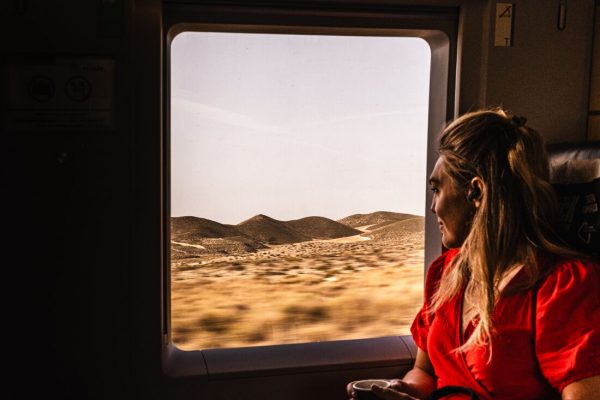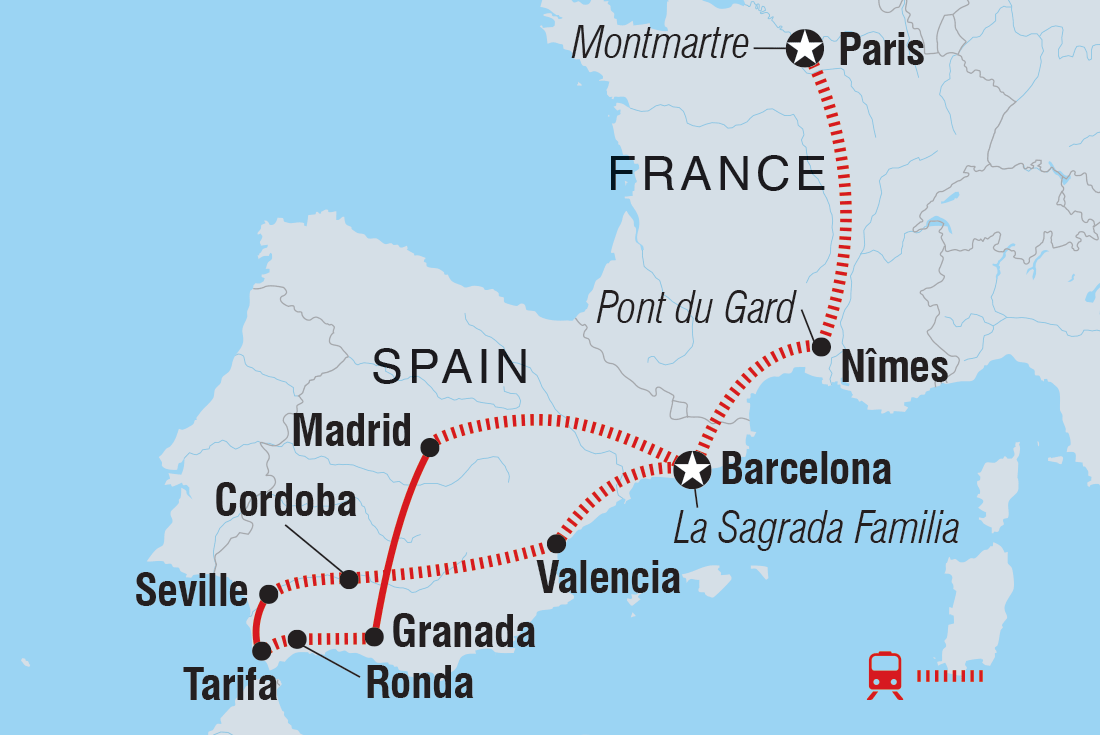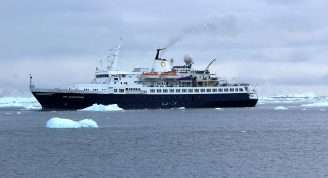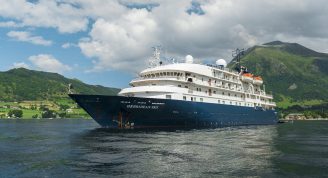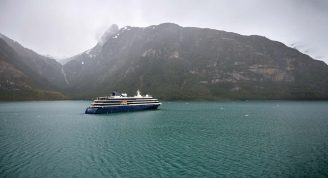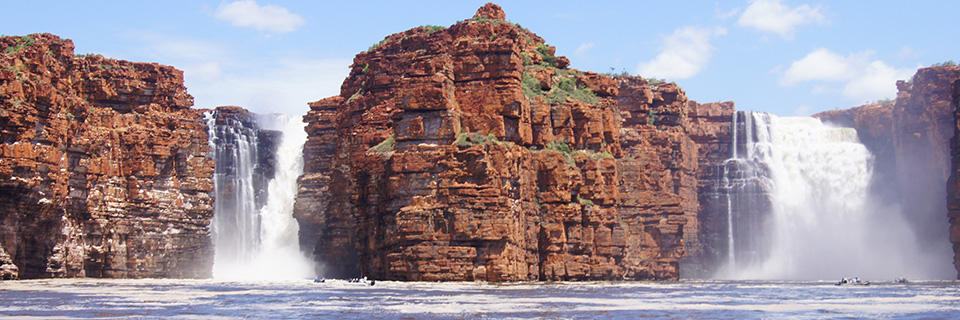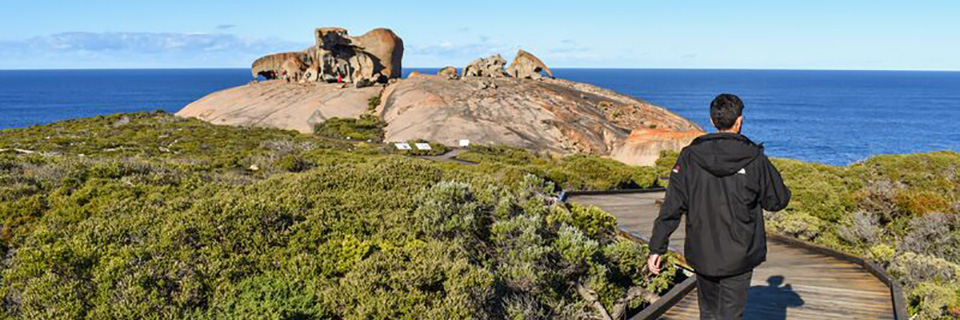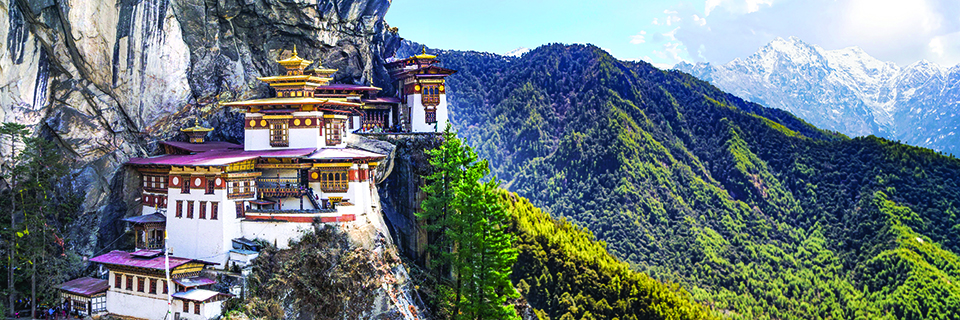Description
Combine French flair with Spanish panache on a 22-day adventure through two of Europe’s biggest names. Soak up the bright lights of Paris before hopping on a train to Nimes in the south of France, home to well-preserved Roman monuments from 70 AD. Sample buttery croissants and local wines along the way, then cross into Spain and feel the buzz of Barcelona before touring all the way to Tarifa and back. Settle in with sangria and tapas, take in a flamenco performance and feast on some of the world’s best paella. This is a trip bursting with colour and culture.
Trip Name
France & Spain
Last Updated
2024-08-13
Days
22
Capacity
12
Highlights
- Explore Paris' Montmartre area – a favourite for artists for generations. See where Van Gogh and Picasso used to live and take hidden walkways to secret viewpoints that only locals know.
- Discover the eccentric modernist architecture of Antonio Gaudi, who made Barcelona his artistic playground. The unfinished masterpiece of La Sagrada Familia is particularly mind-blowing.
- Swim under the Pont du Gard – an incredible example of human creative genius. Explore this aqueduct bridge from above and below and maybe even rent a kayak for another perspective.
- Indulge in buttery croissants in Paris, taste Spain’s favourite dessert (churros) in Madrid and enjoy a tapas dinner in Barcelona where you can rub shoulders with the locals and toast to a sense of community.
- It's a pretty special thing to chill out on a beach in Andalucian Spain, knowing North Africa is just across the water. Explore the scenic Costa de la Luz, and kick back with some tapas and sangria in Tarifa.


